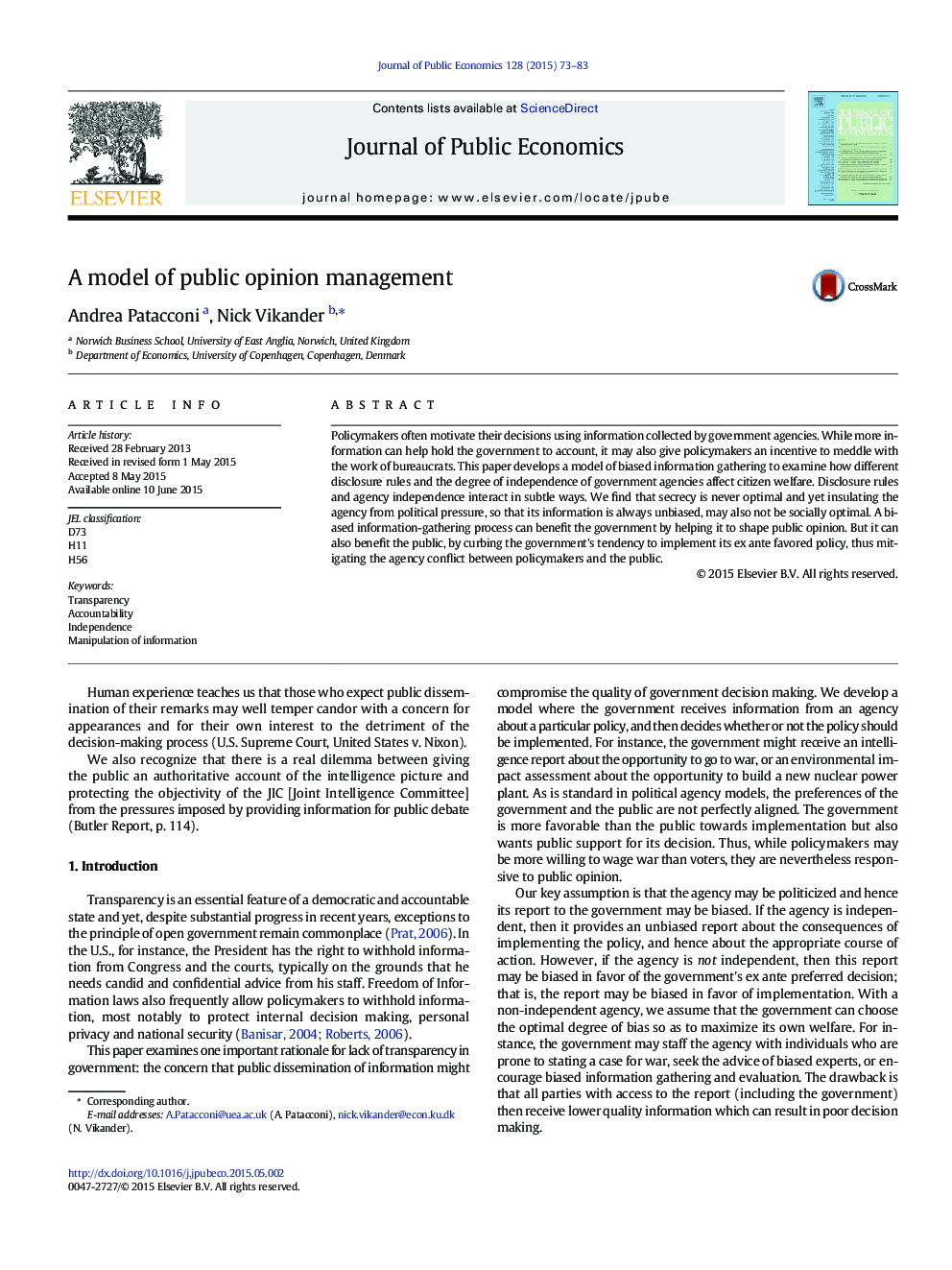| Article ID | Journal | Published Year | Pages | File Type |
|---|---|---|---|---|
| 969653 | Journal of Public Economics | 2015 | 11 Pages |
•A government must decide on a policy based on information from an agency.•We consider different disclosure rules and whether the agency should be independent.•Transparency benefits the public by making the government more accountable.•Non-independence may also help, precisely because it results in biased information.•Bias makes the government cautious and aligns its interests with those of the public.
Policymakers often motivate their decisions using information collected by government agencies. While more information can help hold the government to account, it may also give policymakers an incentive to meddle with the work of bureaucrats. This paper develops a model of biased information gathering to examine how different disclosure rules and the degree of independence of government agencies affect citizen welfare. Disclosure rules and agency independence interact in subtle ways. We find that secrecy is never optimal and yet insulating the agency from political pressure, so that its information is always unbiased, may also not be socially optimal. A biased information-gathering process can benefit the government by helping it to shape public opinion. But it can also benefit the public, by curbing the government's tendency to implement its ex ante favored policy, thus mitigating the agency conflict between policymakers and the public.
